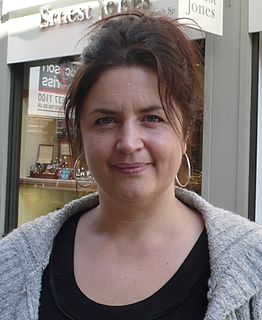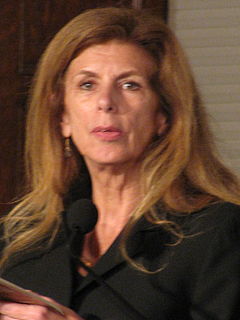Цитата Рут Джонс
Каждый день вы читаете в газетах эти ужасные истории, от которых вам хочется плакать. Вы думаете: «Почему это произошло?» Но в то же время люди могут быть милы друг с другом.
Связанные цитаты
Конечно, дети хотят читать любую популярную книгу, и, конечно же, они хотят читать фэнтези и любую фантастическую фантастику, но им также нравится читать истории с детьми, которые выглядят так же, как они, у которых такие же проблемы, как и у них. И я заметил, что они особенно хотят видеть, чтобы эти персонажи преобладали. Таким образом, они не хотят продезинфицированных ситуаций. Они хотят, чтобы истории были сырыми, они хотят, чтобы они были жесткими, но они также хотят видеть надежду в конце истории.
Может быть, они посмотрят друг на друга и почувствуют странную тоску, но никто из них не будет знать почему. Они хотели бы остановиться, но были бы смущены, и оба не знали бы, что сказать. Они бы пошли разными путями. Кто знал? Может быть, это происходило каждый день с людьми, которые когда-то любили друг друга.
Лучший способ — каждый день читать все с самого начала, поправляя по мере продвижения, а затем продолжать с того места, на котором остановились накануне. Когда она станет настолько длинной, что вы не сможете делать это каждый день, перечитывайте по две-три главы каждый день; затем каждую неделю читайте все сначала. Вот как вы делаете все это одним куском.
Я имею в виду, мы должны читать книги, или мы будем делать ошибки. Если мы читаем истории о том, как жили другие люди, мы можем найти лучший способ жить. Я имею в виду, что мы можем смотреть на жизни других людей и не совершать тех же ошибок, что и они. Или мы можем, например, использовать их примеры в качестве моделей для себя.
Я написал статью в «Нью-Йорк Таймс» об удивительном эффекте совместного удивления — как у меня есть аудитория, заполненная людьми, которые, как вы думаете, будут ненавидеть друг друга, людьми из всех религиозных категорий, все на одном и том же шоу в в то же время. И это удивительное явление — наблюдать за этим общим чувством удивления, когда эти люди, которые действительно не любят друг друга — по хорошим и плохим причинам, по причинам, имеющим смысл и не имеющим смысла, — находятся в одной комнате, переживая это объединение.
Я хочу просыпаться с тобой каждое утро и засыпать рядом с тобой каждую ночь, — серьезно сказал мне Патч. «Я хочу заботиться о тебе, лелеять тебя и любить тебя так, как ни один другой мужчина никогда не смог бы. Я хочу избаловать тебя — каждый поцелуй, каждое прикосновение, каждая мысль — все они принадлежат тебе. Я сделаю тебя счастливым. Каждый день я буду радовать тебя.
То, что я индиец, возможно, больше всего повлияло на мои истории. Не только с точки зрения сеттинга — большинство сеттингов в моих рассказах индийские, — но и с точки зрения персонажей и сюжета. Я думаю, что взросление в Индии развило мое воображение определенным образом, чего не произошло бы ни в каком другом месте. Я также очарован идеей Индии, и написание рассказов позволяет мне исследовать это. Что касается тематических элементов, то они, наверное, довольно очевидны в моих рассказах. Я также надеюсь, что мои истории разрушат стереотипы хотя бы в небольшой степени.
Страшно подумать обо всех вещах, которые были ужасны для тебя. Но для меня было очень приятно делиться ими всеми, потому что люди читают их и начинают думать: «О, ладно, я не должен чувствовать себя таким дерьмовым из-за этого» или, может быть, даже: «Почему я чувствую себя таким дерьмовым?» об этом? Я должен признать это и извлечь из этого уроки». Вот такие истории я хочу рассказать.




































